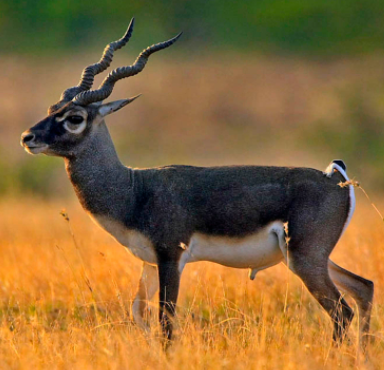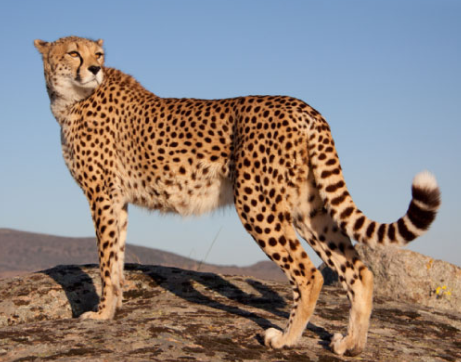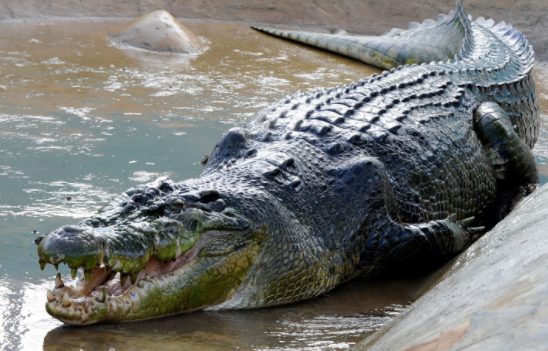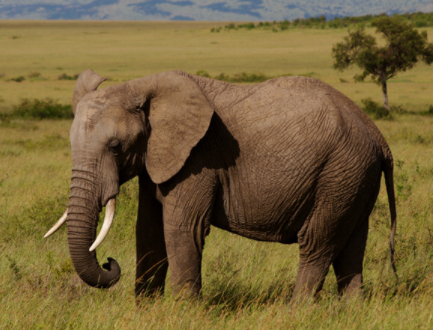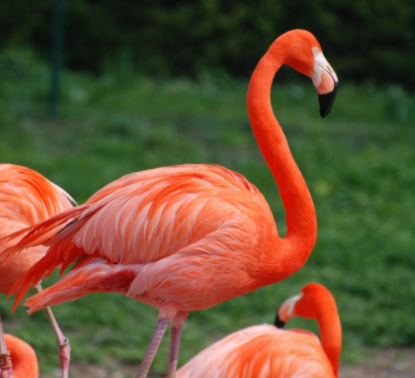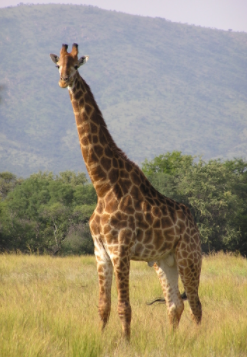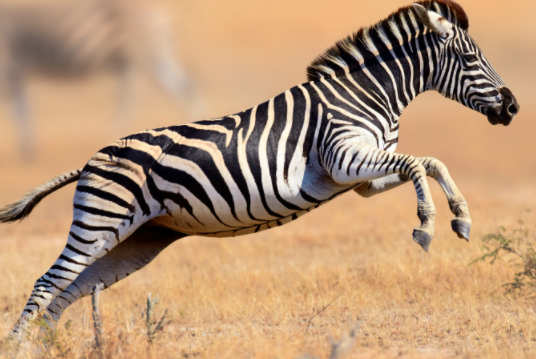Year 2 English Home Learning - 08.03.2021 - 12.03.2021
Hello Year 2,
This week is very different to what we were expecting but it is only one more week until we can be back in the classroom together. I know you are all going to be amazing and will work hard at home this week ready to come back into the classroom next Monday.
I am so proud of all of you and cannot wait to have you all back in the classroom together. Keep working hard and remember to send me lots of photographs so I can see what you are up to.
This blog includes a phonics session and an English lesson. You do not have to complete them together - it may work better to have a break in between. A phonics session in school lasts for around twenty minutes. The English lesson is longer.
Daily reading is super important. Please read your banded reading book, spending about ten minutes reading every day. You can find online banded books by clicking here. This will take you to the free ebook library from Oxford Owl. If you have not used this website before, then you will just need to register to access the books. It does not cost anything at all.
This week in English, we will be reading and discussing some poems about animals, learning to recite a poem and discussing word meanings. We will be working towards performing our own poem the following week when we are back in school.
Please remember that any worksheets do not need to be printed, they are there to support and guide you and you can have a go at these activities on a piece of paper at home.
Our zoom call will be on Tuesday at 1pm, the details will be text out half an hour before it starts. I look forward to seeing you all then.
Monday
Phonics
1. This week’s common words are:
Mr Mrs break most after beautiful
2. We are going to be using the -ly suffix again this week. Today we are going to be changing nouns into time adverbials.
Use the rules of adding -ly to change the following nouns into time adverbials.
hour week month annual day first final immediate inital second eventual
3. Use the time adverbials you have created and write 5 sentences. If you really think about it you could write a short narrative so that all of your sentences follow on from each other.
English
Today, we are going to listen to and discuss some poems. What is poetry? Do you know any poems? Do you know any nursery rhymes? Poems are written by poets. There are many different types of poem. Many have rhythm, which is the pattern the words make when they are put together. Some poems have rhyming words at the end of lines.
Read the poems below, written by Axel Scheffler. These are taken from his book ‘Flip Flap Safari.
It’s a Lion
My mane is thick, my teeth are sharp,
I am a mighty beast.
Be careful not to cross my path,
I’ll eat you - what a feast!
I pad towards the waterhole
On my four furry paws
Be careful if you’re drinking there -
I’ll catch you in my claws!
It’s a Warthog
My snout has lots of funny lumps and bumps,
My tusks are sharp and short.
I swish my tail and flap my ears,
And give a great big snort!
Although my legs aren’t very long,
I trot around quite fast.
And if you ran a race with me,
I bet you would come last!
It’s a Rhinoceros
I’ve tiny little piggy eyes,
My horn is sharp and long.
My teeth can grid up leaves and sticks.
I’m grumpy and I’m strong!
My skin is tough and leathery.
My body’s very large.
Be careful you don’t startle me -
You don’t want me to charge!
What do you notice about these rhymes? Are there any patterns? Write down the rhyming words.
Which parts do you like? Write some sentences using the sentence stem ‘I like the part….’ Try to give a reason for your chosen part.
Tuesday
Our zoom call will be on Tuesday at 1pm, the details will be text out half an hour before it starts. I look forward to seeing you all then.
Please can you make sure you bring 1 piece of work with you to show everybody and also have a piece of paper and a pen/pencil with you. I would like you to also create a bingo square for multiplication bingo - it needs to have 6 multiples of 2 (6 different numbers that can be found in the 2 times table - 0x2 - 12x2). Look at the grid below to help you .
Phonics
1. Practice reading and spelling this week’s common words.
Mr Mrs break most after beautiful
2. Today we are going to be using the -ly suffix to change nouns into adjectives.
Use the rules of adding -ly to change the following nouns into adjectives.
friend mother home brother ghost bubble beast curl wool man
3. Use the adjectives you have created and write 5 sentences. If you really think about it you could write a short narrative so that all of your sentences follow on from each other.
English
English
Starter: Read this sentence and say three times. Now try and write it without looking at it.
I am grumpy and I am strong.
Repeat with this sentence:
My snout has lots of lumps and bumps.
Let’s read this poem taken from Axel Scheffler’s book ‘Flip Flap Safari’.
It’s a Buffalo
When I was born, my coat was red,
But now it’s shiny black.
I’ve long and lovely curving horns,
And birds upon my back!
My cloven hooves are black and hard,
My legs are short and stout.
I trot around with my big herd -
We like to charge about!
We are going to learn this poem off by heart. Draw a text map with words and pictures to help you retell this rhyme. Now try adding actions as you say it to help you remember.
Next week, we will be able to recite this poem together using our actions.
Wednesday
Phonics
1. Practice reading and spelling this week’s common words.
Mr Mrs break most after beautiful
2. Read the following passage and identify the words containing the -ly suffix.
The fisherman spoke wisely to me about the best way to catch a fish. The ripples in the water softly hit the side of the boat. Sadly, although he was moving slowly he crashed and was badly hurt. Finally he got back to the harbour and steadily unloaded the fish from the boat.
3. I want you to now use the words you have identified to create your own sentences.
English
In today’s lesson, we are going to think about the meaning of some words used in Axel Scheffler’s poems.
Can you find out what these words mean?
stout herd mighty snout trot camouflage leathery startle slender canter
It helps to read the word in a sentence so that we can think about the context.
My legs are short and stout.
I trot around with my big herd.
I am a mighty beast.
My snout has lots of lumps and bumps.
I trot around quite fast.
My dots are camouflage, you see - they make me hard to spot.
My skin is tough and leathery.
Be careful you don’t startle me - you don’t want me to charge!
My legs are long and slender.
I canter up savannah hills.
When you have discussed or written the meanings of these words. Choose the words you like and think about the different animals that you could describe.
Thursday
Phonics
1. Practice reading and spelling this week’s common words.
Mr Mrs break most after beautiful
2. I have listed a few words below – some have the -ly suffix and some are just words ending in ‘ly’. Can you sort them into 2 columns? Remember for it to have a suffix it must be a word on its own once the suffix has been taken away.
belly immediately tally friendly jelly apply firstly bubbly rely brotherly
3. I would like you to use the words you have sorted to write your own silly sentences. Remember silly sentences don’t always have to make literal sense.
English
Let’s begin by retelling the poem ‘It’s a Buffalo’. Use your text map to help or go back to the poem if you need to practise some more.
Look at the photographs of different animals. Choose an animal you are familiar with. What do you already know about this animal? How could you describe it? Do you need to find out some more information?
Today, you are going to write some sentences about your chosen animal. Take out your words from yesterday - do any of those words work with your chosen animal?
Year one should aim to write three to five sentences about their chosen animal. Of course, you may always write more!
Year two should aim to write six to ten sentences about their chosen animal. Of course, you may always write more!
Please send a photograph of your writing to Mrs Claxton or Miss Hughes using our email addresses. We would love to see your writing and send you some feedback.
Friday
Phonics
1. Practice reading and spelling this week’s common words.
Mr Mrs break most after beautiful
2. Write a list of as many words you can that have the -ly suffix. If you are feeling extra clever today could you sort them into adverbs, adjectives and time adverbials.
3. Get somebody at home to read you the following sentences. Say them together and then write them independently. Remember to say the sentence as many times as you need to to help you remember it.
Shyly, the girl stood in her beautiful, sparkly dress.
The elderly man stopped immediately when someone stepped out in front of him.
The lonely boy was friendly to everyone on a daily basis.
English
Starter: We are going to play sentence substitution. Read the sentence and then see how many more sentences you can make by swapping words using the list below.
Lions have sharp teeth.
mane, thick, crocodile, legs, short, strong, pointy
Now read this sentence:
My mane is thick and my teeth are sharp.
The word ‘and’ is joining two main clauses. The clause ‘my mane is thick’ and the clause ‘my teeth are sharp’ make sense on their own.
The word ‘and’ is a coordinating conjunction. We are going to use this coordinating conjunction to join some two clause together.
Use the word ‘and’ to join the two sentences, turning them into one sentence. Remember to use spaces between your words and begin with a capital letter, ending with a full-stop.
My ears are enormous. My trunk is long.
My hooves are black. My legs are short.
My snout has lumps. My tusks are sharp.
My smile is wide. My teeth are sharp.
My skin is tough. My body is very large.
How did you get on? Send a photograph of your writing so we can check.
Year 2 extension:
Try using the following coordinating conjunctions in sentences about your chosen animal.
and but or
Click on the picture below to watch a video about coordinating conjunctions.




